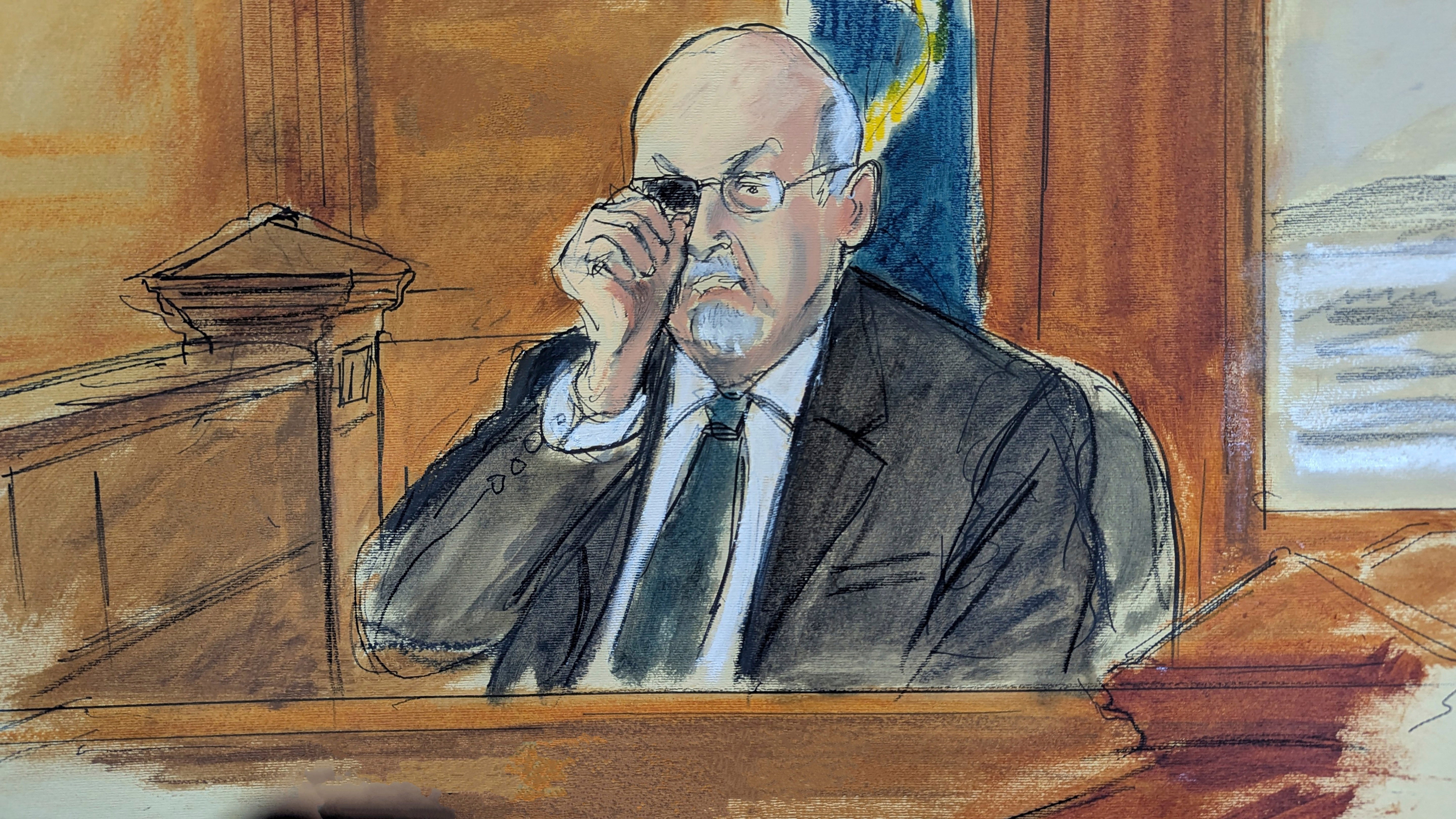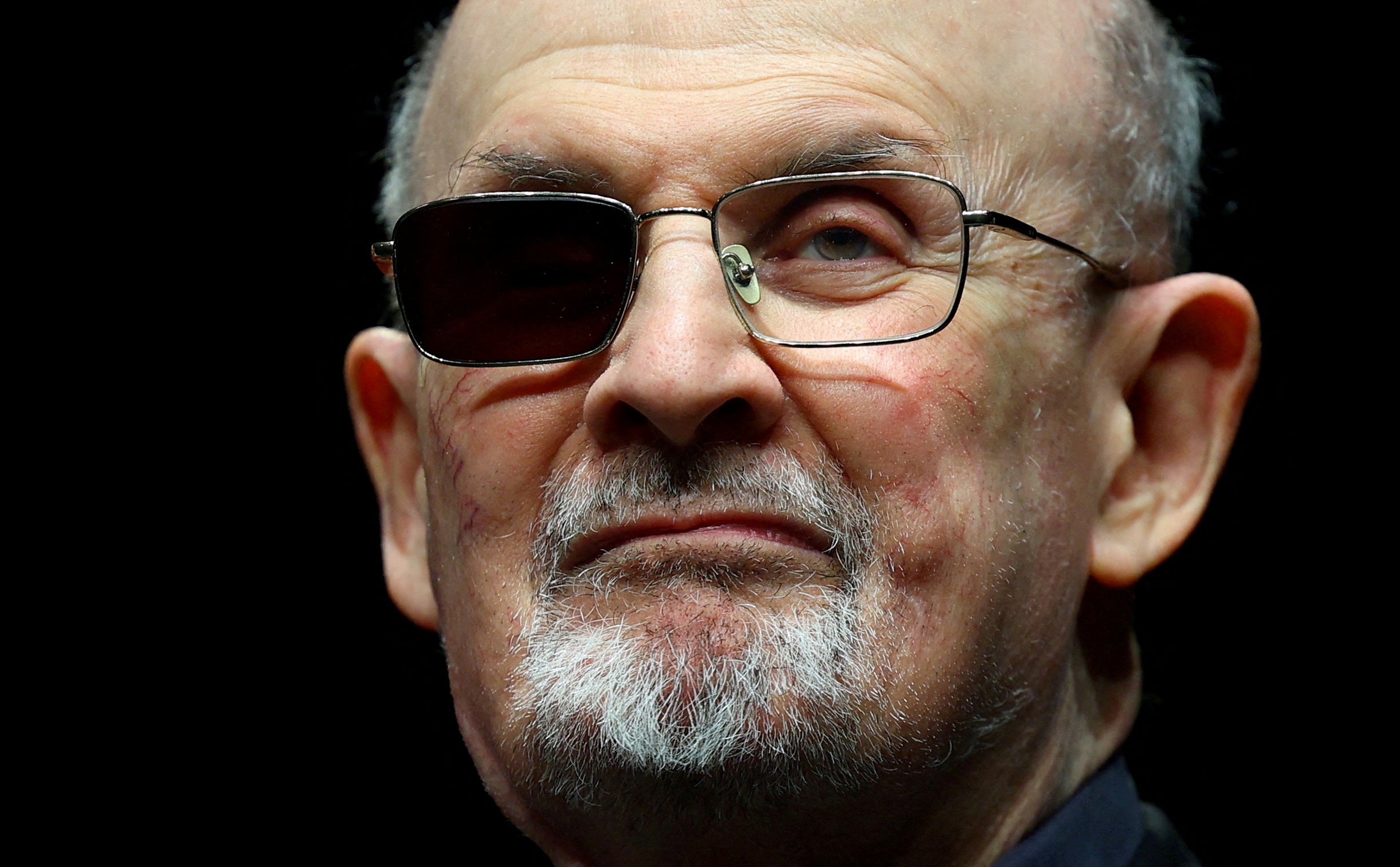A New York jury has convicted Hadi Matar of trying to kill Salman Rushdie, a Booker Prize-winning novelist who was seriously wounded and blinded in one eye in a harrowing knife attack two-and-a-half years ago.
Matar, 27, learned his fate Friday, nearly two weeks after the trial began on February 10.
He looked down when the verdict was read, and said, “Free Palestine,” as he was led out of the courtroom in handcuffs, WGRZ reports.
The jury deliberated for less than two hours.
The attacker was also found guilty of assault for injuring a man onstage with Rushdie.
The New Jersey man had pleaded not guilty to both charges. He faces up to 25 years in prison, and his sentencing hearing is set for April 23.
“We had a number of different angles to show the jurors," District Attorney Jason Schmidt told reporters after the verdict. "It really is as compelling as it can possibly get.”
The Independent has contacted Rushdie’s representatives for comment.
Matar’s defense told CBS News he was disappointed by the jury’s decision but had been preparing for that possibility.
Matar’s trial took place at Chautauqua County Court in western New York, a short distance from the Chautauqua Institution, where the knife attack unfolded on August 12, 2022.
Rushdie was about to speak in front of an audience at the amphitheater when a masked man rushed at him onstage, stabbing and slashing him more than a dozen times.
On the second day of the trial, Rushdie, now 77, faced Matar for the first time as he calmly told a jury about the frenzied moments of the attack, revealing that he believed he was going to die.
“It occurred to me that I was dying. That was my predominant thought,” the renowned author said, adding that the people who subdued the assailant likely saved his life.

The celebrated Indian-born British-American author has faced death threats since his 1988 novel The Satanic Verses was declared blasphemous by Iran’s then-supreme leader Ayatollah Ruhollah Khomeini.
“I became aware of a great quantity of blood I was lying in,” Rushdie testified in court. “My sense of time was quite cloudy, I was in pain from my eye and hand, and it occurred to me quite clearly I was dying.”
During the trial, jurors watched chaotic footage of the assault that showed the attacker quickly striking the author over and over before being tackled by bystanders and pinned to the stage.
“I want you to look at the unprovoked nature of this attack,” Schmidt said in court on Friday of the videos during his closing argument. “I want you to look at the targeted nature of the attack. There were a lot of people around that day but there was only one person who was targeted.”
Four videos, each shot from different angles, show only glimpses of the severely injured Rushdie, who fell to the stage near the attacker.
Each man is surrounded by people, one group holding Matar down and the other tending to Rushdie’s wounds. Someone brings a stack of towels and another elevates his legs.
Henry Reese, the co-founder of City of Asylum Pittsburgh, a safe haven for persecuted authors and artists, was set to interview Rushdie on stage as part of the lecture. He was also injured in the attack.
Investigator Scott Mills testified that he took a statement from Rushdie and a DNA swab 10 days later, when the author was still hospitalized in Erie, Pennsylvania.

Rushdie had been stabbed and slashed in the head, eye, neck, torso, leg and hand, and spent 17 days at the hospital and more than three weeks at a New York City rehabilitation center.
The attacker’s defense argued that prosecutors didn’t prove Matar wanted to kill the author, a core component of the attempted murder charge.
“You will agree something bad happened to Mr. Rushdie, but you don’t know what Mr. Matar’s conscious objective was,” assistant public defender Andrew Brautigan told jurors. “The testimony you have heard doesn’t establish anything more than a chaotic noisy outburst that occurred that injured Mr. Rushdie.”
They also claimed Rushdie’s celebrity caused Matar to face unduly severe charges for the attack.
Matar did not testify during the trial, and his defense did not call any witnesses on his behalf.
The 2022 attack is the subject of Rushdie’s memoir Knife: Meditations After an Attempted Murder.
Matar was also indicted on federal terrorism charges related to the stabbing. A trial date for those charges has yet to be confirmed.
The terror indictment alleges Matar was motivated by a Hezbollah leader’s 2006 endorsement of Khomeini’s decades-old fatwa.
The original 1989 edict sent Rushdie into hiding for years, but the author of Midnight’s Children and Victory City traveled freely over the past quarter century after Iran announced it would not enforce the fatwa.







